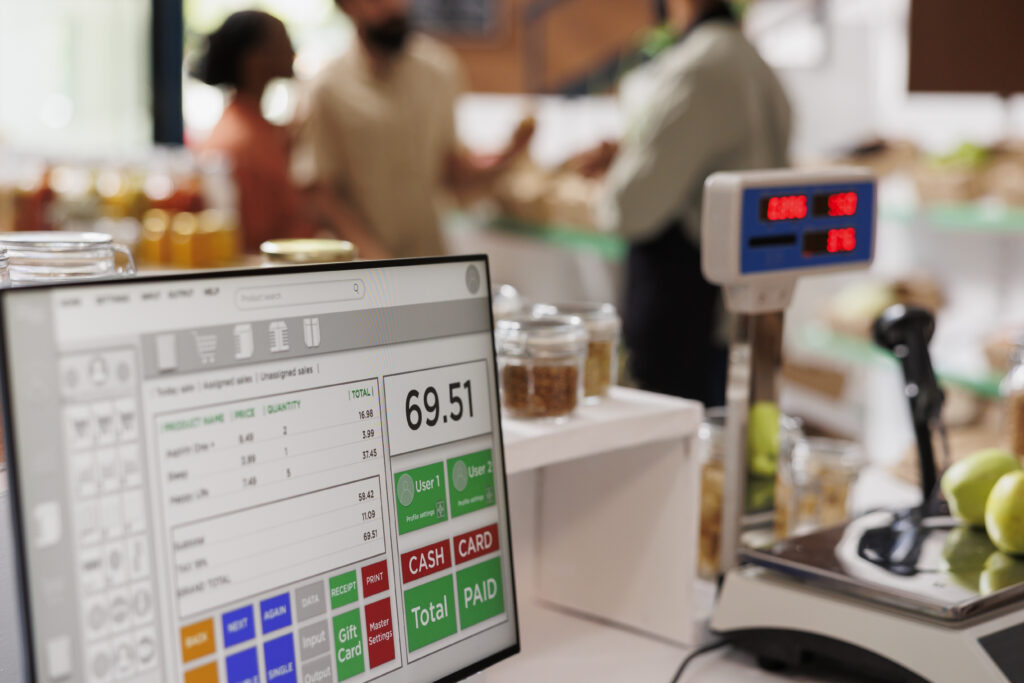
Farmers’ markets have long been a cornerstone of local economies, connecting consumers with fresh produce, handmade goods, and artisanal products. However, in today’s fast-paced digital world, relying on outdated systems for vendor coordination, stall assignments, and payment processing is no longer sustainable. That’s where a market management system can make all the difference—eliminating inefficiencies and modernizing how markets operate.
The digital transformation of farmers’ markets is no longer a luxury but a necessity. With the right technology, market organizers can streamline operations, vendors can simplify their workflows, and consumers can enjoy a seamless experience. This blog explores how modern market management system solutions are reshaping the industry and why embracing technology is crucial for sustainable growth.
The Challenges of Traditional Farmers’ Market Management
Farmers’ markets play a vital role in local economies, fostering community engagement and supporting small-scale producers. However, behind the vibrant stalls and fresh produce lies a complex web of logistical challenges that market organizers and vendors face daily.
Some of the most pressing issues include:
- Inefficient Stall Assignments: Assigning stalls manually can lead to confusion, double bookings, or the unfair distribution of prime spots. Organizers often struggle to balance vendor preferences, foot traffic patterns, and space constraints without a structured market management system in place.
- Payment Collection Hassles: Markets typically involve multiple vendors using different payment methods, cash, checks, digital wallets, and card transactions. Manually tracking these payments, issuing receipts, and reconciling financial records can become a logistical nightmare.
- Limited Vendor Oversight: Without a centralized vendor management system, tracking vendor participation, attendance, and adherence to market regulations is a challenge. Organizers may struggle to monitor who shows up, who cancels last-minute, and whether vendors are complying with licensing and health codes.
- Communication Bottlenecks: Important updates, such as schedule changes, stall reassignments, or fee reminders, are often shared through emails, phone calls, or word of mouth. This fragmented approach can lead to missed messages, miscommunication, and unnecessary confusion among vendors.
- Accounting Complexities and Errors: Managing invoices, processing vendor fees, tracking overdue payments, and maintaining accurate financial records require meticulous effort. Without an automated system, errors in bookkeeping can lead to financial discrepancies and disputes.
These operational inefficiencies not only consume valuable time and resources but also hinder the potential growth of farmers markets across regions. In today’s digital era, technology-driven solutions like a market management system can transform market operations, making them more efficient, transparent, and scalable.
How Technology is Transforming Farmers’ Markets
By integrating digital tools into market management, organizers and vendors can operate more efficiently. Here’s how technology is addressing key challenges:
- Automated Stall Assignments
Instead of relying on spreadsheets or manual scheduling, digital platforms allow organizers to automatically assign stalls based on vendor preferences, availability, and past participation. This reduces conflicts and ensures a fair distribution of space in the farmers market.
- Seamless Payment Processing
Modern farmers’ markets are moving beyond cash-only transactions. Digital platforms now integrate with payment gateways like Stripe, Square, and PayPal, allowing vendors to accept credit/debit cards and mobile payments. Organizers can also automate vendor fee collection and send reminders for pending payments through a market management system.
Curious how a simple shift in payment processing can transform an entire market’s operations? Check out our blog, From Ordinary to Extraordinary: Ariel’s Custom Stripe Payment Integration Solution, to see how we helped vendors streamline transactions and get paid faster with a custom Stripe integration.
- Vendor and Attendance Tracking
Market managers can now track vendor attendance digitally, ensuring compliance with participation agreements. With mobile check-ins and real-time dashboards, it’s easier to see which vendors are present, improving overall organization using a robust vendor management system.
- Centralized Vendor Management : Instead of handling multiple spreadsheets, market organizers can use a single digital dashboard to:
- Approve vendor applications
- Track applied and approved markets
- Send automated updates about upcoming events
- Manage financial records and invoices
All these features fall under a comprehensive vendor management system that improves control and clarity.
Want to see how AI is taking vendor management to the next level? Dive into “AI-Powered Vendor Management System: Revolutionizing Vendor Relationships and Payments” to explore how smart systems are reshaping vendor relationships and payment workflows.
- Better Financial Oversight:
A digital ledger system ensures that all transactions, invoices, and payments are recorded accurately. This reduces accounting errors and helps market organizers maintain financial transparency using a proper market management system.
- Enhanced Communication Tools :
Gone are the days of sending multiple emails or making endless phone calls. Modern platforms provide real-time communication features like:
- Automated email updates
- In-app notifications for vendors
- Messaging tools for instant updates
All of these help the farmers market run more smoothly.
The Benefits of a Digitally Transformed Farmers’ Market
Adopting digital solutions doesn’t just make life easier for organizers—it also enhances the overall market experience for vendors and customers.
For Market Organizers:
- Time Savings: Automating processes reduces the administrative burden.
- Improved Vendor Relations: A structured system ensures smoother coordination.
- Data-Driven Decisions: Real-time insights help optimize market performance.
For Vendors:
- Easy Market Applications: Vendors can apply for multiple markets effortlessly.
- Faster Payments: Digital transactions are quicker and more reliable.
- Better Organization: Vendors can track sales, fees, and upcoming events all in one place through a vendor management system.
For Customers:
- More Payment Options: Cashless transactions improve convenience.
- Better Vendor Availability: Organized markets ensure a wider selection of products.
- Seamless Shopping Experience: Digital platforms can offer maps, vendor listings, and product availability within a modern farmers market setup.
The Future of Farmers’ Markets: Smart and Scalable
The digital transformation of farmers’ markets is only the beginning. With advancements in AI, cloud computing, and mobile apps, the future will see even more sophisticated solutions. Imagine:
- AI-driven market analytics predicting customer demand trends.
- Smart inventory management helps vendors optimize stock.
- Digital loyalty programs reward frequent shoppers.
As technology evolves, farmers markets can scale operations without sacrificing their local, community-driven essence.
Final Thoughts:

The digital transformation of farmers’ markets is no longer a futuristic concept, it’s a necessity. As traditional management methods struggle to keep pace with growing vendor demands, rising customer expectations, and complex financial tracking, technology offers a streamlined solution. From automated stall assignments and seamless payment processing to real-time vendor communication and data-driven insights, digital tools empower market organizers to run operations more efficiently.
By adopting market management system software, organizers can reduce administrative burdens, improve vendor relationships, and create a more engaging, hassle-free experience for both vendors and shoppers. The result? A thriving, well-organized farmers market that fosters community connections while maximizing profitability.
Transform Your Market Operations with Ariel Software Solutions
At Ariel Software Solutions, we specialize in building innovative digital platforms tailored to your needs. Whether you want to streamline vendor management, automate payments, or gain valuable insights through data-driven reporting, our expert team can develop a customized market management system that fits your business.
Let’s revolutionize how your farmers market operates! Contact us today and discover how we can help you take your market to the next level.
Frequently Asked Questions (FAQ)
1. What is a market management system for farmers’ markets?
A market management system is a digital platform designed to streamline various operational aspects of farmers’ markets. It helps with stall assignments, payment processing, vendor communication, and reporting, all in one centralized system, reducing manual work and boosting efficiency.
2. How does a vendor management system improve farmers’ markets?
A vendor management system provides organizers with tools to oversee vendor applications, attendance, payments, and compliance. It ensures transparency, improves communication, and allows for better tracking of vendor activities, resulting in a more organized and professional market environment.
3. Can a market management system help with payment processing?
Yes, modern market management systems integrate with payment gateways like Stripe and Square. This allows vendors to accept credit/debit cards and mobile payments while enabling organizers to track transactions, issue digital receipts, and automate vendor fee collections.
4. What are the biggest challenges traditional farmers’ markets face?
Traditional farmers’ markets struggle with inefficient stall assignments, manual payment tracking, poor communication, and limited vendor oversight. Without a digital system, these issues can lead to scheduling errors, payment disputes, and operational delays.
5. Is a vendor management system suitable for small farmers’ markets?
Absolutely. A vendor management system is scalable and can be tailored for markets of all sizes. Small markets can benefit from simplified vendor coordination, automated updates, and faster onboarding without needing a large IT infrastructure.
6. How does digital transformation benefit vendors at a farmers’ market?
Vendors experience easier applications, faster payments, and access to real-time information on sales, events, and fees. Through a robust vendor management system, they can also maintain better organization and participate in more markets seamlessly.
7. What features should I look for in a farmers market management system?
Look for features such as:
- Automated stall assignments
- Payment gateway integration
- Real-time vendor tracking
- Communication tools (emails, notifications)
- Financial management and reporting
- Centralized vendor database
8. Can customers benefit from a digitally managed farmers’ market?
Yes! A digitally transformed farmers market can offer cashless payments, updated vendor listings, interactive maps, and product availability info, creating a smoother, more enjoyable shopping experience.
9. How can I get a custom market management system for my farmers’ market?
You can reach out to technology providers like Ariel Software Solutions, who specialize in building tailored digital platforms for farmers’ markets. Their solutions help streamline operations, improve vendor management, and enhance the market experience for everyone involved.




